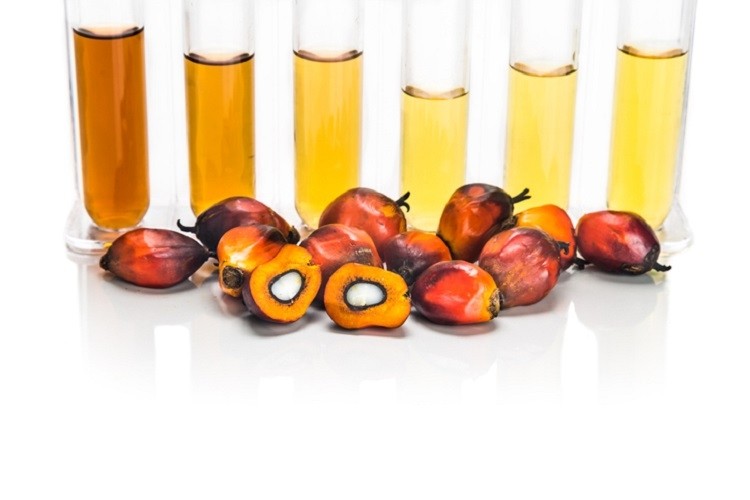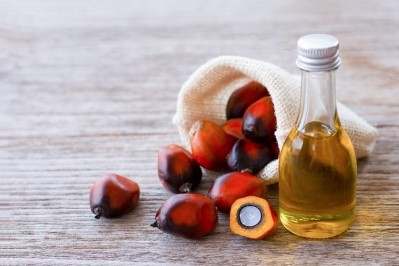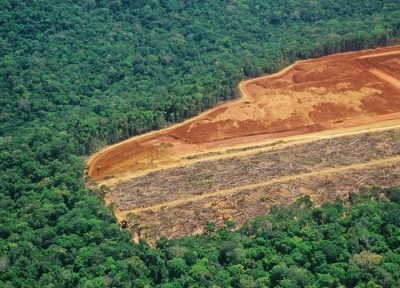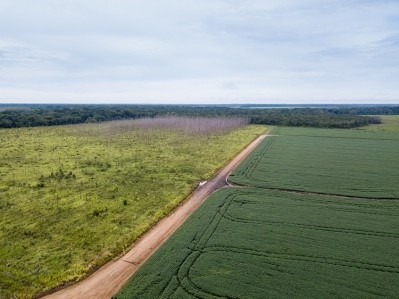What does Europe’s deforestation law mean for palm oil? RSPO talks challenges and opportunities

In an effort to stamp out environmental and human rights violations from European supply chains, a new due diligence law is expected to be enforced as early as 2024.
Palm oil has long been associated with land clearing in biodiverse forests and continues to be a major driver of deforestation. How will the palm oil sector be impacted by the incoming legislation?
Palm oil in an ‘advantageous’ situation
Last month, a provisional agreement was reached between the European Parliament and the Council on due diligence legislation. All companies selling products coming from cattle, poultry, cocoa, coffee, soy, maize, and palm oil, amongst others, are implicated.
The legislation has received with mixed reactions. But sustainable palm oil organisation Roundtable on Sustainable Palm Oil (RSPO) is ‘absolutely supportive’.
“The goal of this legislation is to minimise the European Union’s contribution to deforestation…The contribution of the EU to deforestation through consumption is around 10-15%, which is significant and disproportional,” Ruben Brunsveld, deputy director of EMEA at RSPO, told FoodNavigator.

Despite palm oil’s longstanding association with deforestation in tropical regions – 85% of global supply comes from Indonesia and Malaysia – the sector is not expected to be most heavily impacted by the incoming laws. In fact, the palm oil sector could find itself in a better position than other commodities on the list, explained Brunsveld.
“Palm oil is in a bit more of an advantageous situation I would say, compared to a lot of the other commodities,” he told this publication. This is because 93% of all palm oil imported into Europe for food, feed, cleaning products and cosmetics is already certified sustainable. “From that perspective, it won’t change much for the palm oil sector.”
Unfortunately for palm oil in Europe, this statistic is not well-known, lamented the deputy director. “That is really something we need to recognise, that Europe is almost completely reliant on sustainable certified palm oil. And we need to make sure we keep that up.”
Regulation an ‘opportunity’ for palm oil sector
From a reputational standpoint, the incoming regulation represents an obvious opportunity for the palm oil sector.
Palm oil is produced in 44 countries globally, with the vast majority sourced from just two: Indonesia and Malaysia. These Southeast Asian nations have both made ‘huge strides’ over the last decade in reducing deforestation rates, explained Brunsveld.
Indeed, in Indonesia deforestation peaked in 2016 and fell below pre-2004 levels in 2017-2019. The regulation, therefore, offers an opportunity to ‘present those successes to the European market’, we were told.
“Peak [global] deforestation was 30 years ago, and since then deforestation has declined. But in Europe, we’re still hanging onto that image when it comes to palm oil. This legislation will be an opportunity change that narrative…”
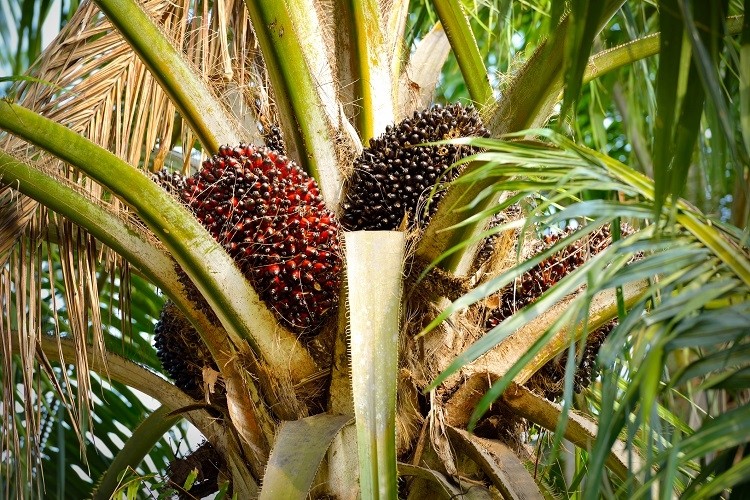
Another positive expected to come from the forthcoming legislation relates to its focus on deforestation across the board. Its aim is for no commodity associated with deforestation – whether legal or illegal – to enter European supply chains.
The UK’s Environment Act, as a comparison, is focused on eliminating illegal deforestation rather than legal deforestation.
“We want to address deforestation and forest degradation regardless of whether it is legal or illegal in the country of production,” explained Diego Torres, international relations officer at the European Commission’s Directorate-General for Environment (DG ENV) at the recent RTRS Meeting Point.
“This is a major shift in terms of our policymaking…and we have done this for several reasons, [including] that a lot of deforestation going on in producing countries is legal, or is legalised after a certain number of years – as has happened many times.”
For RSPO’s Brunsveld, the EU’s focus on both illegal and legal deforestation is a ‘strong’ element of the legislation. The EMEA deputy director suggested there have been learnings from the EU Timber Regulation.
“We know, for instance, that in the Timber Regulation previously – which focused on illegal deforestation – there were just too many ways that products associated with deforestation were still entering the EU market.
“I think it was, as such, a good choice – from a sustainability perspective – to include both legal and illegal deforestation.”
Could high-risk suppliers be blacklisted by Europe?
RSPO has backed the due diligence legislation from the get-go. But that does not mean the sustainable palm oil organisation does not foresee potential challenges for members of the palm oil supply chain.
In the short-term, for example, it will be ‘tough’ for companies to get their supply chains ready, explained Brunsveld, “there is no doubt about it”. But, this is not an impossible task.
“It’s also true to say that with the implementation deadline as it is set up on 18 months [for large companies] and 24 months for small and micro enterprises, that will be doable, and the sector will [abide by its] obligations.”
Another potential risk could relate to the benchmarking system incorporated in the new legislation. According to the forthcoming law, the Commission will classify countries and regions as low-, standard-, or high-risk, depending on the commodity in question.
Might such a system mean that buyers decide against purchasing palm oil from high-risk areas, and instead opt for low-risk supply?
“We know that risk exists. We hear it from our members, we hear it from their clients,” said Brunsveld.
“For that reason, it’s really important that in the coming period, the Commission engages with the Malaysian and Indonesian governments, and other producing countries for that matter, to get a really good insight into the progress the sector has made in the last couple of years and take that into account.”
Another unintended outcome could be that the high-risk areas associated with deforestation continue to sell palm oil to other countries that don’t have stringent due diligence requirements.
But the deputy director doesn’t foresee this to be a risk. “The palm oil sector, through its producers and processors and traders, have committed to have its entire supply chain internationally [and not just in for Europe] deforestation-free by 2030. So that would close that leakage market.”
Shaking off palm oil’s negative image
In preparation for the legislation, certification schemes could play a valuable role.
While in RSPO’s case, its certification goes beyond deforestation to include other environmental and social requirements, Brunsveld suggested certification schemes could prove effective tools in helping producers prepare for enforcement.
“We see a great interest [in our certification scheme] from companies. Third-party certification has been recognised as a tool that companies can use in their risk assessment.”
This does not mean that certification schemes provide a ‘green lane’ for the EU validation requirements. Rather, that certification schemes can be one of the tools companies can leverage to show their compliance
The legislation will also put to bed questions around consumers’ willingness to pay a premium for sustainable produced palm oil. In Europe, this legislation will create a level playing field, explained Brunsveld.
“Whether consumers are willing to pay or not, this is going to happen. Everybody has to comply with it, and that’s just a fact.”
Europe is central to maintaining the sustainable palm oil market, with 46% of the production of certified sustainable palm oil entering its supply chains. RSPO’s hope is that the legislation will shine a light on sustainability in the sector and that ultimately, consumer attitudes will change.
“If we look at the European market, the sustainability element is the most important. [We want to] show the progress that palm oil has made and finally turn away from the negative [image] that palm oil still has in Europe.”
